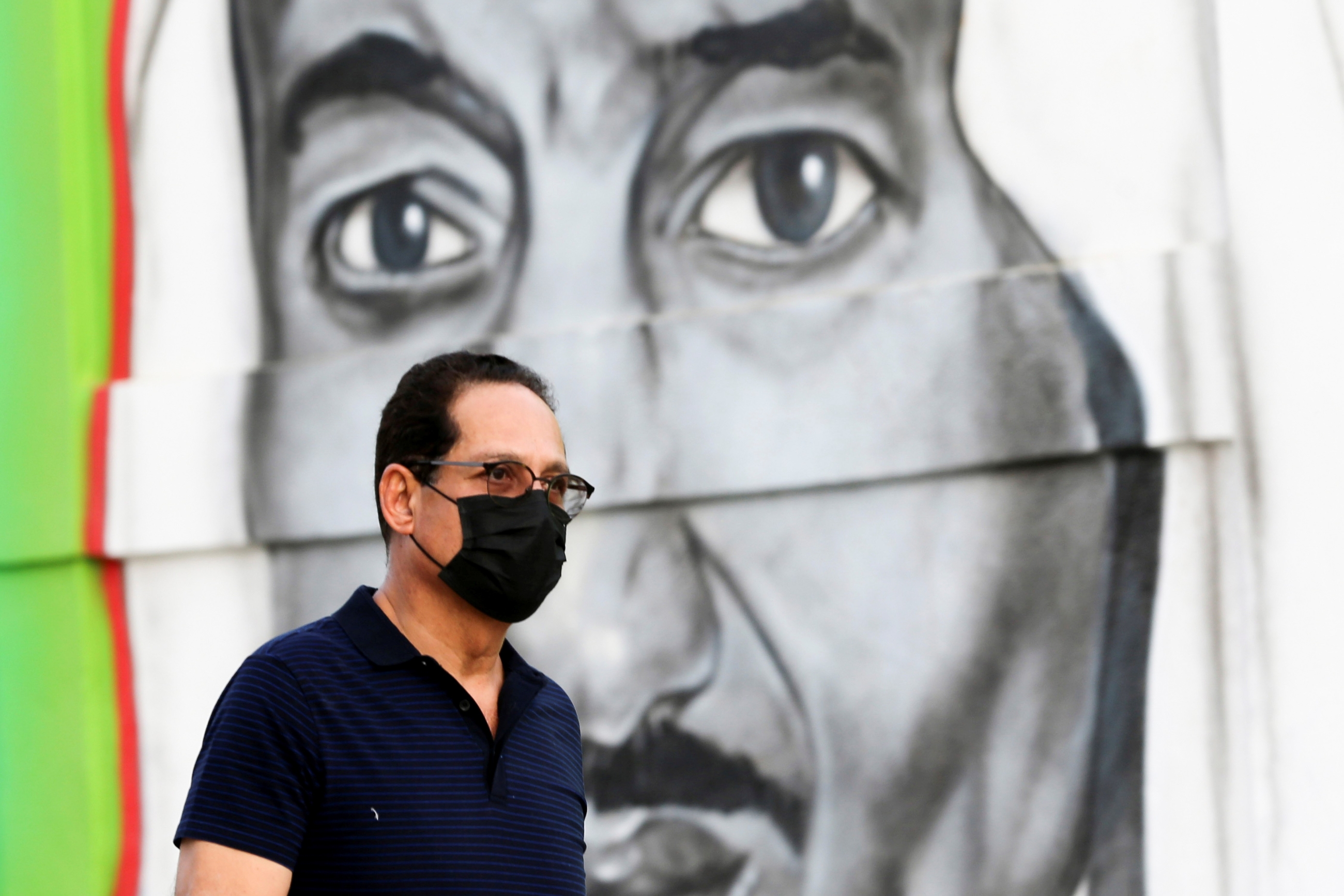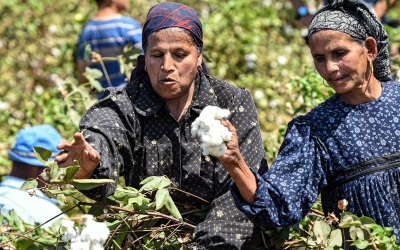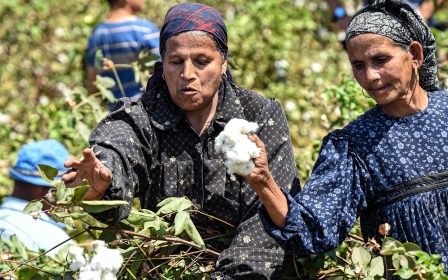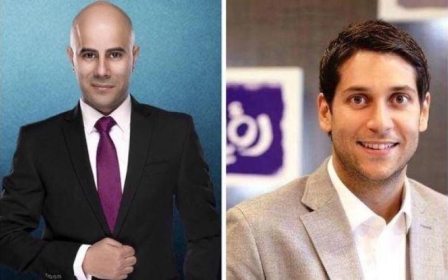Coronavirus: Jordanians sacked by Saudi firms launch campaign to return home

“To relax is to be home” is the slogan that Jordanians working in Saudi Arabia have launched as part a campaign to ensure their return home after they lost their jobs due to the coronavirus-induced shutdown of the Saudi economy.
Ahmad Al-Hita, who works in Saudi Arabia and helped to organise the campaign, says that 4,000 Jordanians have signed up.
“I began this campaign on 17 March after communicating with the Jordanian embassy in Riyadh," he told MEE.
"There are many Jordanians who have literally lost their daily subsistence because of not having work anymore.
“Among the 4,000 people, there are 420 Jordanians who lost their jobs permanently.
"In addition, there are 700 who have been forced to take a three-month period of unpaid leave and I am one of them.
"Four hundred have had such a difficult time that they are literally surviving with the help of other Jordanians in the KSA [Kingdom of Saudi Arabia].
"I had to rent an apartment for three Jordanians who were living in the streets.”
'We have supported Jordan's economy for years'
According to a study by the Jordan Strategy Forum, a semi-governmental organisation, 61.4 percent of all Jordanian expats live in Saudi Arabia, 14.1 percent reside in the Emirates and 12.5 percent are in Qatar.
In Saudi Arabia alone, out of the kingdom's 945,000 foreigners, 430,000 of them are Jordanians.
Hita said that his campaign has reported on a number of the worst humanitarian cases, which were then transmitted to the Jordanian embassy in Riyadh.
“The embassy staff promised a solution but we have seen nothing," he said. "All we are asking is that an effort to gradually transfer these Jordanians home begins.
"We have supported the Jordanian economy for years from the remittances we send back home.”
Luxury hotels
On 22 April, the Jordanian foreign ministry launched an electronic platform for Jordanians wanting to return home, including students stranded abroad.
The embassy said students, especially females, would get priority.
By Monday, the foreign ministry's platform had registered 23,000 students.
Jordanian foreign ministry spokesman Daifallah al-Fayez told MEE that “the priority is for students, and specifically female ones, who are stranded abroad".
"Also, students with difficult health situations are also a priority," he said.
“But everyone who returns must adhere to mandatory supervised quarantine at the Dead Sea hotels [in Jordan] and at their own expense, while the government will cover those who can’t pay.”
The Jordanian government started quarantining travellers at the 4- and 5-star Dead Sea hotels on 16 March, after it made the sudden decision to close Jordan's air space while some flights were still in the air and coming in to land at the Queen Alia airport in Amman.
The move was made as part of strict measures to stem the the spread of the coronavirus.
'Return of the expats will not be soon'
Jordanian officials have given returning students the choice of staying at the Dead Sea Hotels at a rate of $100 a day, or in newly established caravans in the Dead Sea area for $20 per day.
The length of the quarantine will be 17 days.
Students are being charged to stay at the hotels because of the large numbers wanting to return, according to Amjad Adaileh, the Jordanian government's minister for media affairs.
However, Fayez was not optimistic as to when people would be able to return to the country.
“The return of the expats will not be soon," he said.
"There is an attempt to coordinate with brotherly Arab countries where Jordanians are living, but the issues with airplane flights means it will take much longer.”
'Our family is divided'
The return home campaign has also seen Jordanians trapped in countries other than Saudi Arabia join up.
Fatmeh Jibrel went with her sister to the United Arab Emirates on 12 March.
Jibrel had a return ticket for 22 March, but the Jordanian government stopped all flights to the country on 17 March.
“I went to see my sick sister in Dubai for a week and I didn’t realise that I would find myself stuck for a month and a half," Jibrel told MEE.
"My husband works in Saudi Arabia and my children are with their grandmother in Amman.
"Our family has been divided and our government must give priority to humanitarian cases like ours.
"I applied on the foreign ministry platform but it is not clear when I will get my turn.”
Businessman intervenes
On Monday, Jordan began allowing Jordanians stuck at the border with Saudi Arabia since 17 March - when the borders were closed - to return home.
At the time, Riyadh had imposed a curfew and 50 Jordanians had been stuck in the border area between the two countries.
Ahmad Alaween, an engineer who found himself stuck for over a month in an area called Qriaat, had been living in a gas station on the Saudi side of the border.
“After repeated appeals, some of us have been allowed to enter Jordan on condition that we pay the cost of quarantine for 17 days at the rate of $70 per day, in addition to being tested for Covid-19," he told MEE.
"I work in the energy sector and can cover the cost, but there are others who can’t pay.
"Most of those stuck were only able to enter after a businessman stuck with the group covered the cost of those unable to pay.
"There are still 15 people at the border and the Jordanian authorities are working on getting them to quarantine centres.”
Middle East Eye delivers independent and unrivalled coverage and analysis of the Middle East, North Africa and beyond. To learn more about republishing this content and the associated fees, please fill out this form. More about MEE can be found here.







